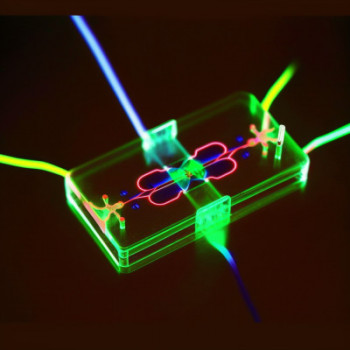News
Queen Mary team awarded £7 million grant to train next generation of organ-on-a-chip scientists and bioengineers
13 April 2024
Queen Mary University of London is one of sixty-five universities chosen to receive funding from the Engineering and Physical Sciences Research Council (EPSRC) as part of a landmark £1 billion doctoral training investment.
This grant will train future leaders in the rapidly expanding field of organ-on-a-chip technology. Organ-chips are miniature bioengineered devices containing living cells enabling them to mimic the behaviour of organs in the body. As such, this technology is poised to revolutionise pre-clinical drug testing, speeding up the delivery of safer, more effective medicines and reducing the use of animal testing
Currently, the pharmaceutical industry relies on pre-clinical models that often fail to accurately predict human response to drugs. This inefficiency leads to high costs, delays in drug development, and ultimately, fewer treatment options for patients. Organ-chip technology offers a promising solution: they can be engineered to replicate the structure and function of various human organs, providing a more accurate platform for drug testing.
The doctoral training programme will combine cutting-edge research with industry engagement, offering sixty or more industry-linked PhD students the opportunity to develop the skills and knowledge required to translate research into real-world applications.
Updated by: Julien Gautrot


